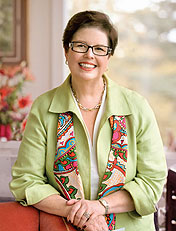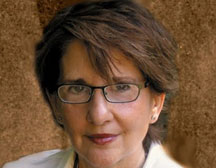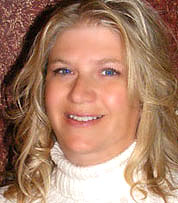wenty years from now, will Sex and the City faithful yearn for a new adventure featuring a much older Carrie and Mr. Big as they reach fifty- or sixty-something and juggle midlife hassles, aging parents, and retirement?
A similar question can be asked about literature. Do readers want to follow the antics of a fifty-something woman as she looks for love while finding herself? Can a literary genre about the boomer generation draw enough interest to sustain it?
The answer to those questions is tricky.
As the tail end of the estimated eighty million baby boomers reach the magical mark of fifty, it makes sense that boomer generation readers want to identify with fictional characters who share similar life experiences.
Some critics consider it chick lit for grandmothers. A few label it as Sex and the City for the menopause set. And for others, boomer literature tells a powerful story about facing challenges and persevering.
Since boomers purchase one of every seven books sold, boomer lit is smoking hot…and the label is a marketing tool worth pursuing.
“It’s time for the hen to strut her stuff.”
Once upon a time in literature, boy met girl. The two fell in love, encountered an obstacle or two, and overcame insurmountable odds to end up happily ever after.
But as readers age, the heroines in romance novels—or mainstream literature, for that matter—remain ageless youngsters, unblemished by life’s school of hard knocks.
Move over, chick. It’s time for the hen to strut her stuff.
In today’s cougar-accepting society, romance and sex turn the page. And the impetus is coming from middle-aged characters that have outgrown starry-eyed first love.
Just when you thought grandma would want to dote on the grandchildren and tend the flower bed, a younger stud or a handsome widower shows up and sweeps granny off her feet, changing the romantic formula that’s been the standard for years.
In matron lit, another term for boomer literature, woman meets man, they fall in love, and one of them deals with a health problem while the other copes with children from a previous marriage. There’s no guarantee of happily ever after. Instead, there’s a feeling of realism that appeals to aging readers.

“…Every genre has some element of romance, but overall, books tell stories about satisfying relationships…”—Debbie Macomber
Novelist Debbie Macomber believes boomers read everything with an open curiosity. “We’re looking for that reminiscing, feel good, optimistic outlook that is reminiscent of our childhood.”
Macomber broke into the romance market twenty-seven years ago during a period when the publishing world was a “big boys club” in New York.
“Romance was the open door that women writers walked through. Look at the best seller lists today. Ninety-five percent of every successful author came through romance publishing,” Macomber stresses. She lists fellow authors Janet Evanovich, Nora Roberts, and Sandra Brown as groundbreakers.
Macomber, who has sold more than one hundred million copies of her books, has written several novel series and feels her characters have grown up right along with her.
“As I’m entering my sixties, it’s a little more difficult to write about a twenty-year-old.”
Macomber agrees that almost every genre has some element of romance; but overall, books tell stories about satisfying relationships, and those relationships may take on different connotations in themes geared toward boomers.
“Right now, there’s a lot of sandwich generation stuff. Our parents are living to be older, and we’re taking care of our children. We think about the relationships we had when we were younger. And for some of us, we’re starting over with an empty nest. We’re finding ourselves,” says Macomber.
Some over-forty readers may be distressed by romance novels featuring mature women because they can relate with the main character. Macomber chuckles at this notion. “If they want realism, look up from the book!”
“I don’t write sex scenes in my books. I joke it’s because I’m married.”—Debbie Macomber
Macomber says when readers pick up a book, they want to involve themselves in the lives of others and forget their own problems. Sometimes that involves flirting and romance.
But it doesn’t necessarily have to involve a steamy-detailed sex scene.
As she’s matured, Macomber doesn’t think the boomer generation expects a lot of sex on the page. Some things are best left to the imagination.
“I don’t write sex scenes in my books. I joke it’s because I’m married. You don’t have to have a sex scene to sell a book.”
Hannah’s List, Macomber’s newest book targeted for boomers, debuts on April 27, 2010. A year after the death of his wife Hannah, Dr. Michael Everett receives a letter from his wife, telling him that he needs to remarry. Hannah makes a list of possible candidates and encourages Michael to get to know them.
“It’s a realistic situation with a character who is giving her husband a generous act of love,” Macomber adds.

“Don’t be afraid of aggression. It’s not a dirty word.”
—Binnie Klein
Boomers facing challenges will resonate with the theme of Binnie Klein’s memoir, Blows to the Head: How Boxing Changed My Mind. Klein, a lecturer in the Department of Psychiatry at Yale University, describes her book as the story of an unlikely contender and her midlife transformation through boxing.
The pages aren’t filled with romance or heated sex scenes. Instead, Klein explains a pivotal period in her life. She grew up in Newark in the 1950s and didn’t break a sweat. As a psychotherapist, she’s lived a fairly sedentary lifestyle. Then, she broke her ankle and foot. During a physical therapy appointment, she spotted a pair of boxing gloves, and at age fifty-five, began boxing with her physical therapist.
“I learned that even if you don’t have a history of athleticism, even if the activity is unfamiliar, if you’ve got what they call heart or courage, you can go for it. Don’t be afraid of aggression. It’s not a dirty word,” adds Klein.
“Good books are good books whether you call them a catchy genre or not.”—Binnie Klein
Klein has mixed feelings about the boomer lit category. She says any time a genre is created, there’s a tendency to assign it a connotation or quality that doesn’t accurately describe it. On the other hand, boomer lit is an interesting marketing tool about the power of change and reinvention that she finds interesting. “Good books are good books whether you call them a catchy genre or not.”
Klein adds that novels depicting the complexity of long-term relationships are appealing. “There’s how a relationship works—the maintenance, keeping the erotic energy going, reevaluating assumptions about gender.” It’s those common bonds that anyone in a relationship experiences that bring readers together.
“I really don’t want to read about aging women getting their rocks off with young studs. It makes me feel old in a way that doesn’t appeal to me.”
That’s why memoirs, written by people who have hit profoundly challenging moments in their lives and have made something from it, appeal to many boomer readers. Klein adds that boomers are a bit of a conundrum. They’re often characterized as a culture of self-satisfied narcissists looking for meaning; while on the other hand, they’ve come through the 1960s and have a collective cultural heritage that is unique.
Klein identifies three strong works that define the boomer experience: Expecting to Fly: A Sixties Reckoning by Martha Tod Dudman, Promise of a Dream by Sheila Rowbotham, and Dana Spiotta’s Eat the Document. She admits that she’s drawn to those stories about people recounting their struggle with psychological difficulties. “My days are spent learning about individual’s psyches. I don’t get to travel much. This is a way for me to expand my knowledge.”
“Everyone is looking for a happy ending. If they don’t experience it in real life, they can find it in the pages of a book.”—Debbie Macomber
Although the boomer generation can’t be defined by a common bookshelf, strong storytelling and characters with similar experiences draw boomers to bookstores.
Macomber believes romance has the brightest future of all genres, even with boomers. “Everyone is looking for a happy ending. If they don’t experience it in real life, they can find it in the pages of a book.”
That means there’s still hope for the hot flash club and menopause set as they experience new romantic and life-changing adventures.
And, if forty is the new twenty, and love begins at forty, then boomer lit is hip. And I’m not talking replacement.
***

LuAnn Schindler is a full-time freelance journalist living on the eastern slope of the Nebraska Sandhills on a dairy farm with 200+ holsteins. She currently blogs for The Muffin, the WOW! Women On Writing daily blog, and is a columnist for Premium Green. Her work has appeared in the Pregnancy, 2: The Couples Magazine, Denver Post, Rural Electric Nebraskan, Absolute Write, in addition to other publications. LuAnn is a member of the National Federation of Press Women and Nebraska Press Women.